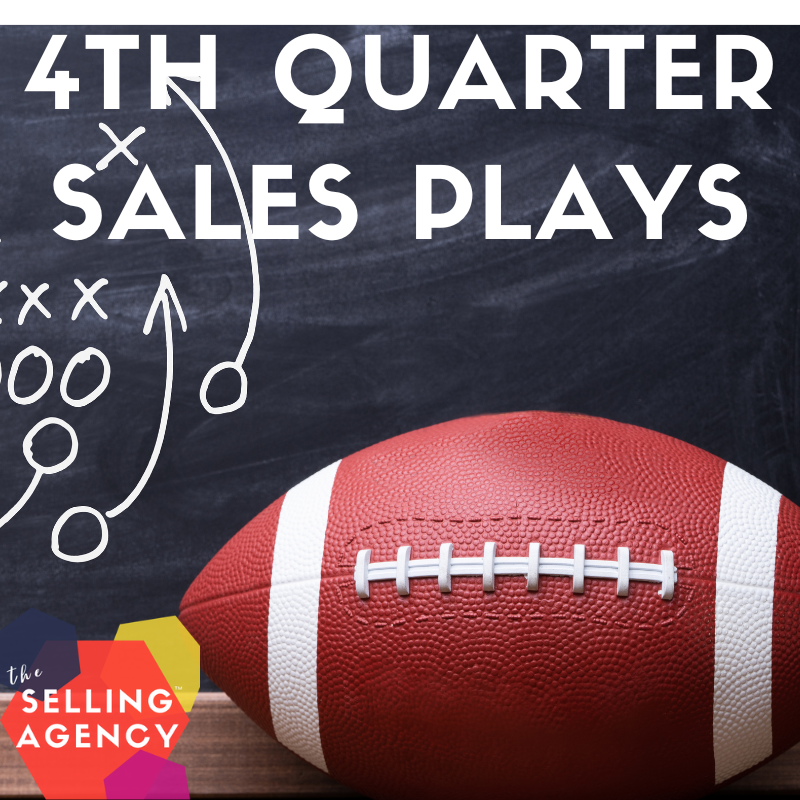Part of understanding the negative feelings out there about sellers is reconciling the fact that much of the sales advice out there preaches manipulative and controlling sales practices that leave customers skittish, untrusting, and gun-shy about sellers’ intentions. Which is why buyers don’t return our calls, shrug off our emails, and work hard to ignore us.
It’s a new day for customers taking the lead AND the leverage in their own buying journey. Yet, much of that sales advice still persists. I wish I could tell you WHY so many in sales are slow to adapt to the new ways of connecting and communicating with buyers. If I had to guess, I would put my therapist hat on and tell you that people resist change for fear of failure – so they persist and ride what they know for as long as they can. “If it ain’t broke” mentality will take you only so far . . . until it doesn’t. Which, for sales professionals, is right damned now.
Our customers deserve better efforts and sellers deserve better sales leadership and advice. Earning their trust is a privilege, their business is not a “right” we deserve by having things that they may need.
There are thousands of great sales books out there. But there’s also some really dated advice and buyer insulting practices that are still being taught to this day. Just last year, after my training session at a sales kickoff meeting, I sat in on a session with my clients where another sales trainer from a well known national franchise told a story about himself as the buyer in which he framed the phrase “Buyers are liars” to this group. Much to my horror, he wasn’t kidding. He told them that to not trust the answers buyers gave them if they wanted to “win.” As if selling was an arm wrestling contest where clearly there was a winner and a loser.
After I picked my jaw up off the floor, I physically cringed through the rest of his talk. It clearly made the sales group uncomfortable too as they kept sneaking peeks at me to see my reaction. I was floored that this type of antiquated notion was still being preached. This was NEVER good advice and I thought it had died 20 years ago. How could this still be a thing?
What else out there is still being perpetuated to the detriment of sellers AND our customers?
Here’s a roundup of some Terrible Sales Advice you should DITCH immediately:
“Trashing Your Competitors” – It’s okay to compare or explain your differences. It is never okay and can make your buyers uncomfortable if you spend your time trash-talking your competitors. This has happened to me on the buyer side several times. A few months ago, I received an email from a social media scheduling tool. They had seen a blog review of the tool I use and reached out to me. The email focused on all the reasons they “were a step up” then the tool I was using. They called out – one by one – the limitations of my current provider and were confident I would appreciate their improved platform. They have no idea – nor did they completely read my review – of the reasons I use a social media scheduling tool and they were completely off about the features I want in my tool.
This has happened in other instances too. I’ve sat in on sales meetings where the seller quickly brought up the big competitor and started ragging on the customer for “falling for their lies.” That seller doesn’t know how close the buyer is to their sales rep, the company, or if they made the decision for the solution. It’s pretty insulting to have someone do that to you.
Talking smack about your competition can really backfire on you. Until your customer brings it up, leave them out of your conversation. Especially if you haven’t asked the right questions to know WHO your customer is currently using and how strong that relationship is. Bashing a competitor could be similar to telling your customer they’re dumb for making that choice – which only makes them dislike you and dig their heels in further.
It can also make them uncomfortable and want to distance them from you.
Just don’t do it.
“Bait and Switch or Fudge the Truth” – I was once on a regional sales call where a seller explained how she got so many prospects to return her call. She was proud to explain how she called and left voicemails for commercial real estate brokers with a vague explanation that she’d like to discuss a particular property. She’d then get the return call and ask to discuss flipping her leads from those property inquiries that were not the right fit for that broker.
Ewwwwww.
She may have gotten her calls returned but did she earn respect or ultimately get results? Maybe a few fell for her ploy, but ask anyone who’s been on the end of a “bait and switch” call and you’ll be hard-pressed to find anyone who enjoys being tricked.
Be upfront and articulate exactly WHY you’re reaching out and what value you can bring. Legitimately. Tricking someone into giving you their time puts a bad taste in their mouth. It usually creates immediate distrust and often dislikes.
Just don’t do it.
“Just Go Straight to the Top” – We’ve all heard about how difficult it can be to get past the gatekeeper . . . or purchasing agent, or assistants, or anyone else whose job it is to screen salespeople. I’ve heard nightmare stories from my buyers where salespeople have pushed and prodded, harassed, and tricked – tried every move in the book to get around those checks and balances to get to their target.
When “Selling to the C-Suite” first hit the bookstores, I heard a Senior Sales Director in my organization misinterpret the spirit and direction of the book and instruct sales executives to “Go straight to the top. Don’t waste time with peons and people who can’t say yes.”
Not wasting time = good. Stepping on people or conniving to undermine them = bad. You’re not going to win any friends with this move. And you can seriously piss off everyone involved who then make it their business to “block” you or ice you out of doing business with the company because you clearly don’t respect their systems or boundaries.
I’ve created some of my strongest cases to oust incumbent vendors by working with the end-users and administrators to understand their business and the intimate details of the problems they need to solve. If I had skipped over them and tried to go straight to the top, I would have been shut down and pushed aside without another shot at bringing my solution higher up into the organization.
Know your audience. It’s not always appropriate or in good taste to “go straight to the top.” Understand that those gatekeepers have a job to do and respect the buyers and the organization enough to find the right way to prove your value and earn their time.
“More Activity Equals Success” – I’m a big fan of sales activity. But it needs to be the right activity. Productive activity. Focused and meaningful activity.
Not dropping off donuts.
Not stopping by because you’re in the neighborhood.
Not leaving “following up” phone calls.
And dear lord, if you know me, my pet peeve of NEVER the “Just checking in” emails.
“Banging on doors, dialing for dollars, spray and pray” . . . frantic actions don’t produce focused results. They scatter your efforts and are distracting more than productive.
You’ve probably heard the phrase, “Sales is a numbers game.” Which, is true to some extent but not the winning formula as you can also say that “Even a blind squirrel finds a nut every now and then.”
More calls, emails, and activity aren’t going to get results if you’re just throwing everything at your customers to see what sticks.
Look at your sales process and refocus to make sure you’re making the most of your time, connections, and resources.
“Don’t Trust What Buyers Say” – Sure, there may be the occasional customer that likes the thrill of negotiation or thinks it’s cute to toy with you. I’d say that’s rare, though, and that in general, prospects aren’t lying to you or tricking you. Buyers have every right to hold their cards close to their vest. They will reveal what they want when they want to, and for purposes that suit THEIR end.
It’s THEIR money. It’s THEIR time. It’s THEIR investment. It’s THEIR process.
But to say that “Buyers are liars,” is a big slap to your customers.
We have to earn their time, earn their respect, and prove ourselves worthy of opportunities.
Ask the right questions. Bring value. Demonstrate experience. Articulate expertise. Show up consistently to become trusted.
It’s painful to see bad sales practices. It’s indefensible to give this as sales advice in this day and age.
How do you know if you’ve been given bad sales advice? Do a gut check. Does it feel right? Would you want to experience YOU if you were in your buyer’s shoes?
Review your sales practices and think through any advice you get from sales leaders, trainers, consultants, coaches, gurus, ninjas, rock stars, or Yoda himself. Make sure it’s the right advice for you, your customers, your product, your industry.
Until next time, stop hoping, start selling!
-sks
PS – What BAD SALES ADVICE have you received? Or, what tacky sales moves have you been on the receiving end of? Share in the comments below!










